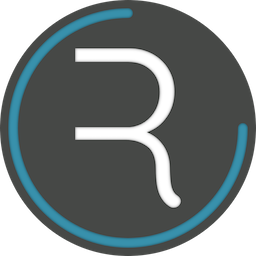modern Python developMENT
⚔️ vs 🚀
Python Meetup Grenoble
2019-03-28
About me
Romain Clement
- CTO @ Sylha
- Freelance Software Engineer
- Open-source software contributor



Summary
-
Dependencies management
House keeping -
Development environment
Make yourself at home -
Continuous integration
Use a safety net, always -
Versatile deployment
Be a shape-shifter
Warning
This material is very opinionated!
All presented tools and methods are working for me, maybe it will for you, maybe it won't.
Tooling is no religion, just a matter of personal preference and experience.
Dependencies management
How can I make sure the packages my software requires are the ones IN use?
Dependencies management
⚔️ Ancient Times
-
virtualenv
-
pip
-
requirements.txt
-
requirements-dev.txt
- ...
> venv myapp
> cd myapp
> source venv/bin/activate
> pip install -r requirements.txt
> pip install another-package
> pip freeze > requirements.txt
> pip uninstall previous-package
> pip freeze > requirements.txt
> pip list --outdated
> pip install another-package --upgrade
> pip freeze > requirements.txtDependencies management
⚔️ Ancient Times
- Tedious (plumbing level)
- Manual package pinning
- How to update all packages consistently given a few constraints?
- How to sync my venv?
- Hell breaks lose when uninstalling packages!
- Horror stories for cross-package sub-dependencies
- Environment isolation
- Quick-start
Good stuff
Not so good
Dependencies management
-
pipenv
-
Pipfile
-
Pipfile.lock
> pipenv install
> pipenv shell
> pipenv install another-package
> pipenv uninstall previous-package
> pipenv update --outdated
> pipenv update
> pipenv sync
> pipenv rm🚀 Modern Times
Dependencies management
- Dependencies & constraints specifications (versions, extras, package sources, PyPI source)
- Handled by pipenv
- Required Python version
- Packages pinning
- À la package.json, cargo.toml etc.
🚀 Modern Times
[[source]]
url = "https://pypi.python.org/simple"
verify_ssl = true
name = "pypi"
[packages]
celery = {extras = ["redis"]}
flask = "*"
redis = "==2.10.6"
[dev-packages]
pytest = "*"
[requires]
python_version = "3.6"Pipfile + Pipfile.lock
Dependencies management
-
Porcelain for venv + pip under the hood
-
Specify dependencies contraints with Pipfile
-
Deterministic environment for dev and production
-
Updating packages a breeze
🚀 Modern Times
- Designed mostly for apps
- Not a replacement of setup.py for libraries
- Too opinionated for some people
Improvements
Limitations
Development environment
How can I develop Python software with confidence and respect 12-factors principles?
Development environment
-
App configuration
-
.env, .env.example
-
pipenv shell
-
python-dotenv
FLASK_APP=myapp.wsgi:app
FLASK_ENV=development
SECRET_KEY=supersecretkey
API_KEY=apisupersecretkeyEnvironment variables
import os
SECRET_KEY = os.environ.get('SECRET_KEY')
API_KEY = os.environ.get('API_KEY')Development environment
-
DO NOT USE MAKEFILES!
-
pyinvoke
-
tasks.py
-
inv <task> <args>
from invoke import task
@task
def tests(ctx):
ctx.run('py.test tests')
@task
def lint(ctx):
ctx.run('flake8 myapp')
@task
def safety(ctx):
ctx.run('safety check')
@task(tests, lint, safety)
def qa(ctx):
passTasks
Development environment
-
External services (databases, analytics, sentry)
-
Development and testing
-
docker-compose
version: '3'
services:
postgres:
image: 'postgres:10.2'
environment:
POSTGRES_USER: "${POSTGRES_USER}"
POSTGRES_PASSWORD: "${POSTGRES_PASSWORD}"
POSTGRES_DB: "${POSTGRES_DB}"
volumes:
- './data/postgres:/var/lib/postgresql/data'
ports:
- "${POSTGRES_PORT_HOST}:${POSTGRES_PORT}"
redis:
image: 'redis:4.0.8'
ports:
- "${REDIS_PORT_HOST}:${REDIS_PORT}"
Docker

Development environment
-
python-dotenv
-
pyinvoke
-
tox
-
pytest
-
flake8
-
black
-
safety
-
liccheck
-
honcho
- ...
Various Tools
CONTINUOUS INTEGRATION
I need a safety-net to catch me if I fall
CONTINUOUS INTEGRATION
Goals
- Quality assurance automation
- After each commit/push
- Non-regression testing
- Code coverage
- Lint check
- Vulnerabilities check
- Dependencies licenses check
- Automatic deployment (CD)
- ...
CONTINUOUS INTEGRATION
CI as a Service
- Travis-CI
- Circle-CI
- Azure Pipelines
- GitLab CI
- BitBucket Pipelines
- Jenkins
- ...
CONTINUOUS INTEGRATION
Configuration
- Most of them: single YAML config file
- Language
- Environment
- Dependencies
- Stages (test, lint, vuln, deploy)
dist: xenial
language: python
python:
- "3.7"
install:
- pipenv install --dev
script:
- pipenv run inv qa
Versatile Deployment
How do I make sure to be able to deploy my software with various environmentS?
Versatile Deployment
Structure
- No "vendor lock-in" syndrome
- Modularize properly the project
- A proper entry-point (WSGI, ASGI, etc.)
- Configurable with env vars + secrets
- Deterministic dependencies
- Buildable in single command
- Runable in single command
Versatile Deployment
Docker (IaaS)
-
Dockerfile
-
docker-compose
- Docker Swarm
- Kubernetes
FROM python:3.7-alpine
RUN set -ex \
&& pip install --upgrade pip \
&& pip install pipenv
WORKDIR /app
COPY Pipfile Pipfile
COPY Pipfile.lock Pipfile.lock
RUN set -ex \
&& pipenv install --deploy --system \
COPY . /app
EXPOSE 5000
ENTRYPOINT ["honcho", "start"]
CMD ["web"]


Versatile Deployment
BuildpackS (PaaS)
-
Heroku / Dokku
-
Build a Docker image automatically
-
Define multiple types of tasks
-
Procfile
-
honcho
web: gunicorn --name=myapp --worker-class=gevent --error-logfile=- myapp.wsgi:app
worker: celery worker --app celery_worker:celery --config celery_config --loglevel=info
beat: celery beat --app celery_worker:celery --config celery_config --loglevel=info
Versatile Deployment
Serverless (FaaS)
-
Zeit Now, AWS Lambda, Azure functions
-
Stateless app automatic scaling
-
Short-lived app instances
-
Run a single entry-point handler function
-
Can be a WSGI / ASGI app
-
Not appropriate for everything
Demo
That's great and all, but can you show me a real-world example?
DeMO
Mailer
Dead-simple mailer micro-service for static websites
- Python + Flask
- Pipenv
- 12-factor app with secrets
- Travis-CI CI/CD
- Docker image
- Docker Swarm / Buildpack / Serverless
Questions?
Comments?
Tomatoes?
Thanks!
References
The 12-factor app: https://12factor.net Pipenv: https://pipenv.readthedocs.io Travis-CI: https://travis-ci.org Docker: https://docs.docker.com Kubernetes: https://kubernetes.io Zeit Now: https://zeit.co/docs Heroku: https://www.heroku.com Dokku: http://dokku.viewdocs.io/dokku